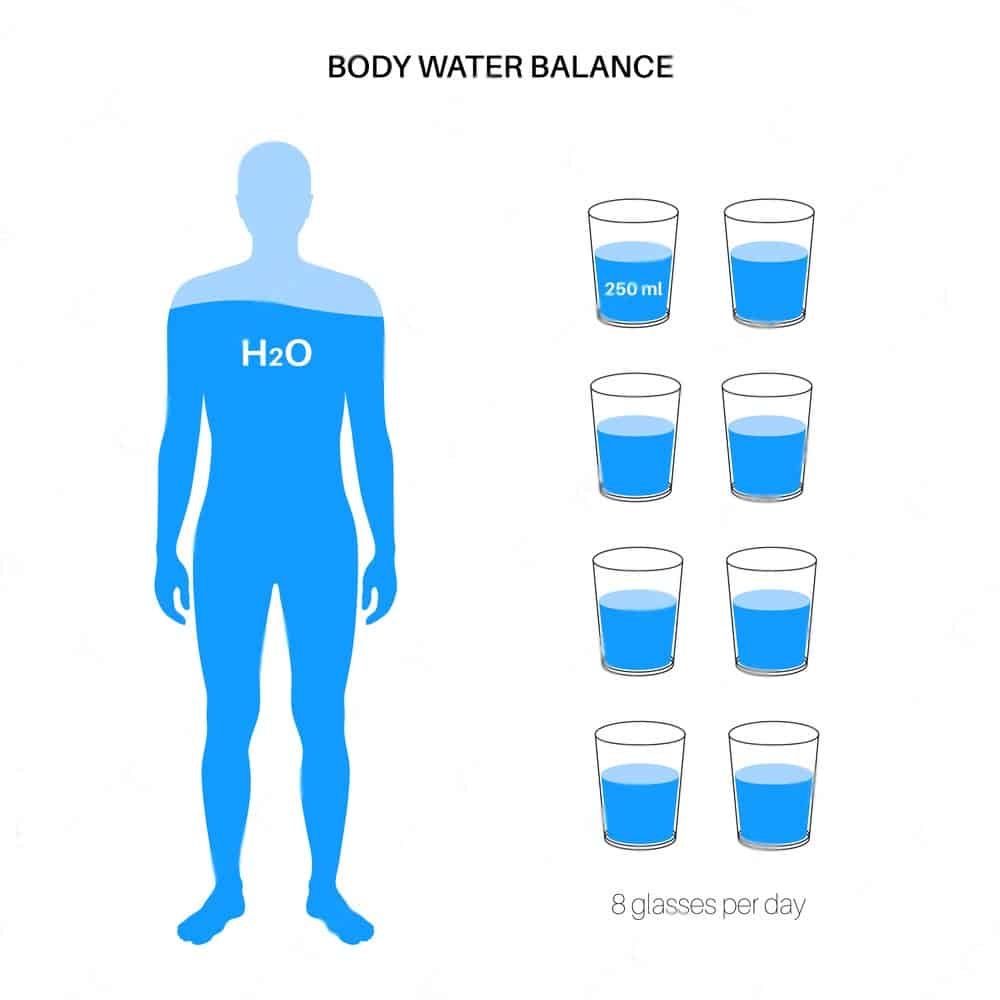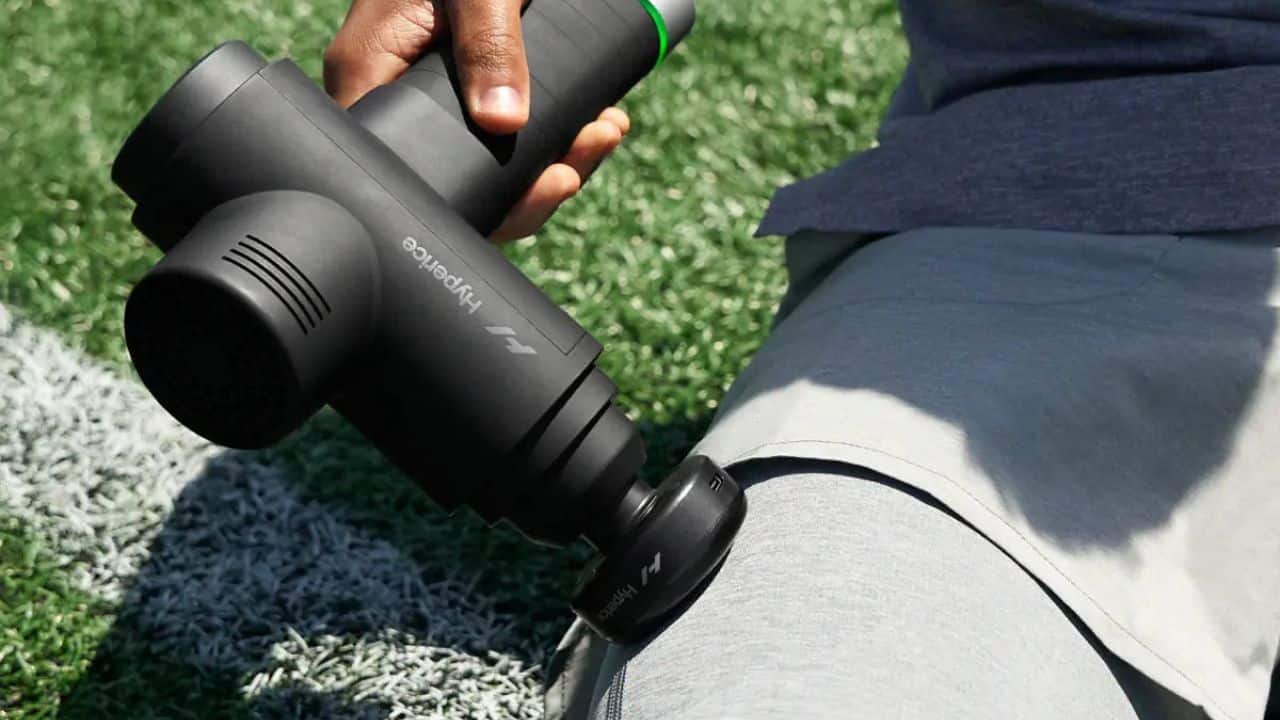Listen to the Podcast:
Are you ready to uncover the truth about creatine and hydration? Well, many of you are questioning about does creatine dehydrate you.
Honestly, there is no certain proof of this data. However, there are some indirect relations between creatine and dehydration.
This article uncovers this question with proper answers and scientific evidence. So, keep on reading till the end.
What is Creatine?
Creatine is an amino acid that is predominantly found in the muscles and brain of the human body. While small amounts of creatine can be obtained from dietary sources such as seafood and red meat, the levels are significantly lower than those in synthetic creatine supplements. Moreover, the body’s liver, pancreas, and kidneys can produce approximately 1 gram of creatine daily.
Creatine is stored as phosphocreatine within the body, primarily in the muscles. It plays a vital role in energy metabolism, serving as a readily available energy source during high-intensity activities. Due to its energy-enhancing properties, creatine is commonly taken orally as a supplement to improve athletic performance and increase muscle mass.
In addition to enhancing physical performance, oral creatine treats certain brain disorders, neuromuscular conditions, congestive heart failure, and other medical conditions. It should be noted that the effectiveness of creatine in these contexts varies, and professional medical advice should be sought for appropriate guidance.
Furthermore, topical creatine formulations may be utilized to treat aging skin, although further research is needed to understand its potential benefits in this area fully.
Ultimately, creatine is an amino acid naturally present in the body, primarily in the muscles and brain. It plays a critical role in energy metabolism and is commonly used as a dietary supplement to improve athletic performance and increase muscle mass. Additionally, it has potential applications in treating various medical conditions, both orally and topically.
How Does Creatine Work?
Adenosine triphosphate (ATP) serves as a crucial energy carrier within cells and is the primary fuel source for high-intensity exercise. ATP is converted into adenosine diphosphate (ADP) and adenosine monophosphate (AMP) during energy expenditure. However, creatine, in the form of creatine phosphate (or phosphocreatine), exists within cells and plays a vital role in energy metabolism.
Creatine works by donating a high-energy phosphate group from phosphocreatine to ADP, effectively restoring it back to ATP. This replenishment of ATP allows for a rapid and sustained energy supply during intense physical activity. By increasing the overall cellular pool of phosphocreatine, creatine supplementation facilitates the expedited regeneration of ATP from ADP, resulting in greater energy availability for high-intensity exercise.
The augmented energy availability provided by creatine can have several beneficial effects. It enables muscles to contract more forcefully and repeatedly during resistance training, increasing strength and power output. The accelerated recycling of ADP into ATP through creatine supplementation enhances the capacity of the muscle cells to sustain high-intensity efforts, promoting improved performance during short bursts of intense activity.
In summary, creatine replenishes ATP levels by transferring a high-energy phosphate group from phosphocreatine to ADP. This mechanism enhances the energy supply for high-intensity exercise, improving strength, power, and overall athletic performance.
Does Creatine Dehydrate You?
Dehydration is often associated with using creatine supplements, primarily because these supplements can cause your muscle tissue to retain water. This water retention can result in weight gain within just a week of starting creatine supplementation.
While dehydration is not commonly listed as a side effect of creatine supplementation, according to the University of Maryland Medical Center (UMMC), they do mention muscle cramps as a potential issue. Muscle cramps typically occur when your body lacks sufficient water. To address this, it is recommended to steadily increase your water intake by drinking small amounts consistently throughout the day, as well as during and after your workouts.
Does Creatine Dehydrate You: Scientific Evidence
According to a laboratory study published in the “Journal of Athletic Training” in 2006, researchers investigated the effects of creatine use on dehydration, muscle cramping, and heat tolerance in men.
The study specifically examined 22-year-old males who consumed 21.6 grams of creatine daily for a week, the standard dosage during the initial “loading phase.” The scientists conducted various exercise tests to determine whether the increased heat would lead to quicker dehydration in the men taking creatine compared to a control group not consuming the supplement but engaging in the same exercise conditions.
The findings indicated that there were no notable differences between the group taking creatine and the group abstaining from the supplement. Therefore, the study concluded that short-term creatine usage, lasting up to one week, does not result in dehydration.
Related Read: Can You Mix Creatine With Protein Powder
Benefits of Creatine
[Video credits @Dr. Westin Childs]
While learning about – does creatine dehydrate you, you should also know the benefits of creatine. Below I’m adding some of the benefits.
Increased Strength and Power Output
Creatine supplementation has consistently improved strength and power during resistance exercise. This can enhance athletic performance and lead to more significant gains in muscle strength.
Modest Increase in Lean Mass
When combined with resistance training, creatine supplementation has the potential to promote modest increases in lean muscle mass. This can benefit individuals aiming to build muscle and improve their body composition.
Enhanced Anaerobic Performance
While the effects are somewhat variable, creatine has been shown to impact anaerobic performance positively. It may improve performance during activities that involve short, intense bursts of effort, such as sprinting or weightlifting.
Reduced Mental Fatigue
Creatine has shown promising results in reducing mental fatigue, particularly in demanding cognitive tasks and sleep deprivation. It may help individuals maintain mental focus and performance during increased cognitive demands.
Improved Working Memory
Research suggests that creatine supplementation may enhance working memory, especially in populations with below-average creatine levels, such as vegetarians and older adults. This benefit can potentially improve cognitive function and performance in specific memory-related tasks.
What are the Proper Dosage of Creatine?
For creatine monohydrate supplementation, a loading protocol can be followed. During the loading phase, taking 0.3 grams of creatine monohydrate per kilogram of body weight per day for 5 to 7 days is recommended. Following the loading phase, a maintenance dose of at least 0.03 grams per kilogram of body weight per day is suggested, which can be continued either for three weeks (if cycling) or indefinitely without additional loading phases.
For example, for a person weighing 180 pounds (82 kilograms), the loading phase would involve consuming 25 grams of creatine monohydrate daily. In contrast, the maintenance phase would require a daily intake of 2.5 grams. However, many users opt to take a daily dose of 5 grams due to the affordability of creatine and the possibility of experiencing enhanced benefits. In some instances, individuals with a significant amount of muscle mass and high levels of physical activity or non-responders to the lower 5-gram dose may find higher doses, up to 10 grams per day, beneficial.
Side Effects of Creatine
Now let’s check out some common side effects of creatine.
- Gastrointestinal Issues: Some people may experience digestive problems such as bloating, stomach cramps, nausea, and diarrhea. These side effects are typically mild and subside as your body adjusts to the supplement.
- Muscle Cramps: In rare cases, individuals may experience muscle cramps while taking creatine. However, it’s important to note that creatine does not directly cause muscle cramps. It may help prevent them by improving muscle hydration and function. If you experience muscle cramps, it is advisable to consult with a healthcare professional.
- Kidney Strain: A common misconception is that creatine can cause kidney damage. However, numerous studies have shown that creatine supplementation in healthy individuals does not pose a risk to kidney function. It is important to note that if you have pre-existing kidney conditions, it is advisable to consult with a healthcare professional before using creatine.
- Allergic Reactions: While rare, some individuals may be allergic to creatine or its components. If you experience symptoms such as rash, itching, swelling, or difficulty breathing after taking creatine, seek immediate medical attention
- Potential Interactions with Medications: Creatine may interact with certain medications or health conditions. If you have pre-existing medical conditions or are taking medications, it’s crucial to consult with your healthcare provider before starting creatine supplementation. They can provide personalized guidance and ensure no potential conflicts or adverse effects between creatine and your current medications or health conditions.
What happens if I don’t drink water with creatine?
If you don’t take enough water with creatine, it can harm you in several ways. Let’s check them.
Muscle Breakdown due to Inadequate Water Intake
When you fail to consume enough water while taking creatine, your body breaks down muscle tissue to obtain the needed water. This process, known as muscle catabolism, can result in the deterioration of your hard-earned muscle mass. It may lead to muscle cramps, weakness, and a noticeable decrease in physical performance. Insufficient water intake while on creatine can harm your overall muscle health.
Potential Issues Resulting from Insufficient Hydration
Inadequate hydration during creatine supplementation can give rise to a range of issues, extending beyond muscle breakdown. One significant concern is kidney problems. Insufficient water burdens the kidneys, as they struggle to effectively eliminate waste products. This strain on the kidneys can lead to kidney dysfunction or even kidney stones. Additionally, dehydration can cause general discomfort, fatigue, dizziness, and an impaired ability to regulate body temperature.
Tips to Ensure Proper Hydration
Here get some tips on ensuring proper hydration.
Pre and Post-Workout Water Intake
Consuming water before and after your workout sessions is crucial to maintain adequate hydration levels. Before exercising, drink at least one glass of water to prepare your body for the upcoming physical exertion. Following your workout, replenish your body’s water stores by consuming at least 20 ounces (approximately 590 milliliters) of water. This practice helps to restore hydration levels and supports muscle recovery.
Including Coffee or Tea in Fluid Intake
While it is essential to drink water for hydration, beverages like coffee and tea can also contribute to your overall fluid intake. Consider consuming more than one cup of coffee or tea throughout the day if it aligns with your tolerance and dietary restrictions. However, it’s important to note that excessive consumption of caffeinated beverages can have diuretic effects, potentially increasing the need for additional water intake.
Timing Creatine Intake for Optimal Hydration
To maximize the benefits of creatine and maintain proper hydration, taking creatine supplements at least 30 minutes before your workouts is recommended. This allows sufficient time for your body to absorb and distribute the creatine, ensuring its availability during your exercise session. By timing your creatine intake appropriately, you allow your body to remain adequately hydrated throughout your workout.
Recommended Water Intake Guidelines
Post-Workout Hydration: To replenish your body’s water stores after physical activity, aim to consume a minimum of 20 ounces (approximately 590 milliliters) of water following each workout session. This helps to restore hydration levels, supports muscle recovery, and promotes overall well-being.
Water Intake for Weight Loss: If your goal is weight loss, it is recommended to drink 2 liters (approximately 67.6 fluid ounces) of water per day. Sufficient hydration aids digestion, promotes metabolism and helps control appetite, contributing to weight loss efforts.
Water Intake for Performance Improvement: A daily water intake of 1 liter (approximately 33.8 fluid ounces) is advised for individuals seeking to enhance their physical performance. Optimal hydration levels contribute to improved endurance, better muscle function, and enhanced overall athletic performance.
Frequently Asked Questions
Now we’ll suggest a few FAQs on this topic.
Do I need to drink more water when taking creatine?
Yes, you should. Consuming an extra 8-10 cups of water per day, or potentially more, is recommended based on your level of physical activity.
Does creatine make you more or less hydrated?
According to research, there is no proven answer to this question. However, it is recommended to take slightly more water while taking creatine.
Do you lose water weight after creatine?
When using creatine, it’s important to note that any weight loss experienced is primarily attributed to reduced water weight. This occurs because creatine supplementation leads to increased storage of creatine monohydrate in the muscles.
Bottom Line
We hope we’ve cleared the query – does creatine dehydrate you?
In the end, we would say it can happen sometimes. To ensure optimal benefits and avoid any potential dehydration, consuming adequate amounts of water while taking creatine is crucial. Maintaining proper hydration levels is essential for overall health, athletic performance, and minimizing the risk of potential side effects.
Disclaimer: This content is for informational purposes only and does not replace professional medical advice, diagnosis, or treatment. This information is not comprehensive and should not be used to make health or well-being decisions. Consult a qualified healthcare professional with questions about a medical condition, treatment options, or health regimen. This website or the content should never replace professional medical advice.








































